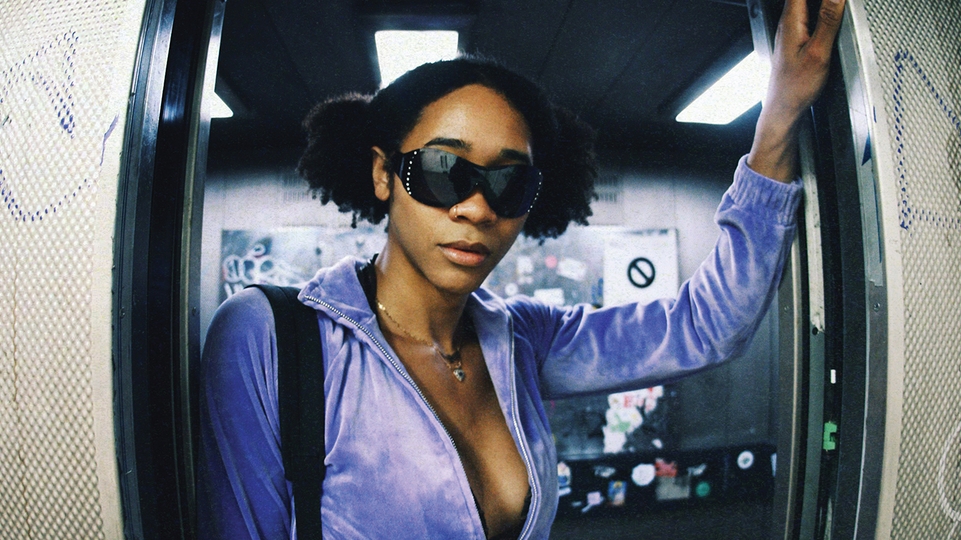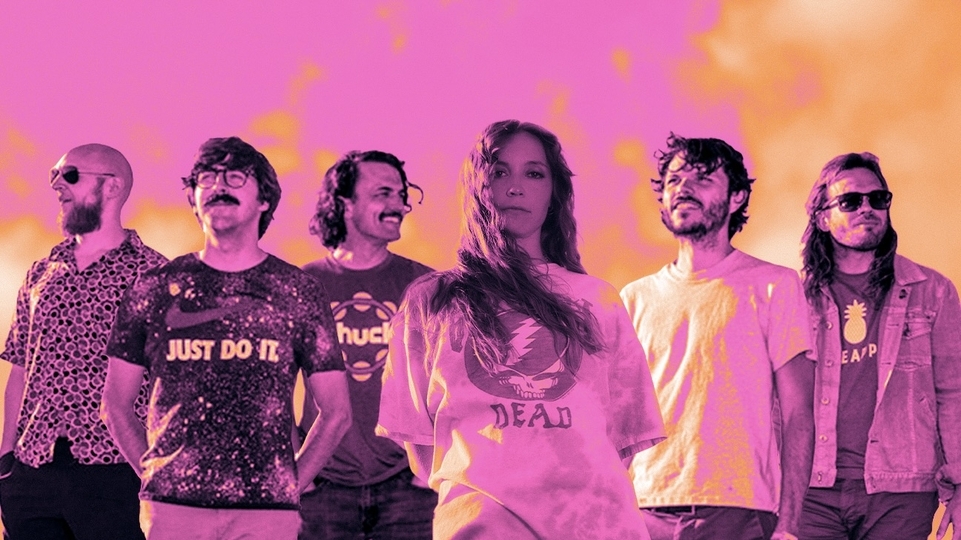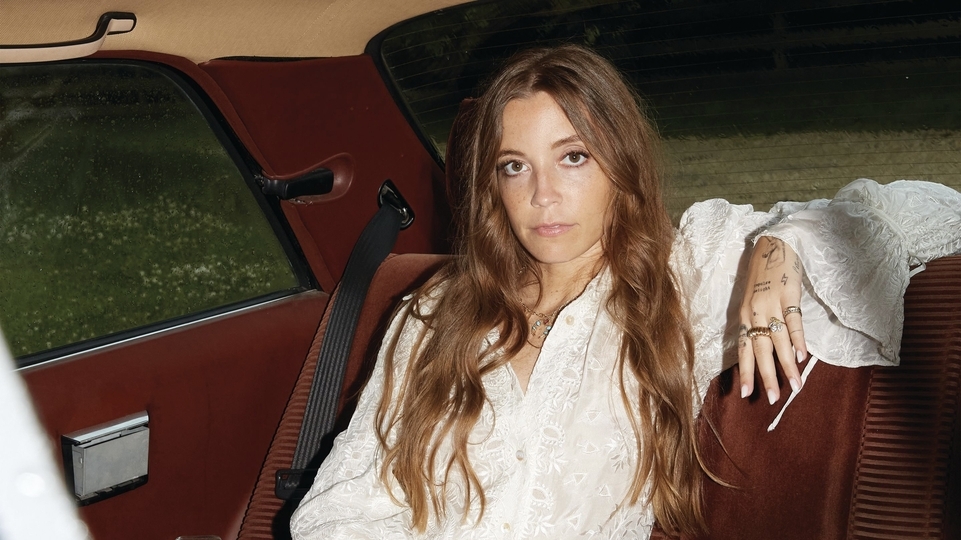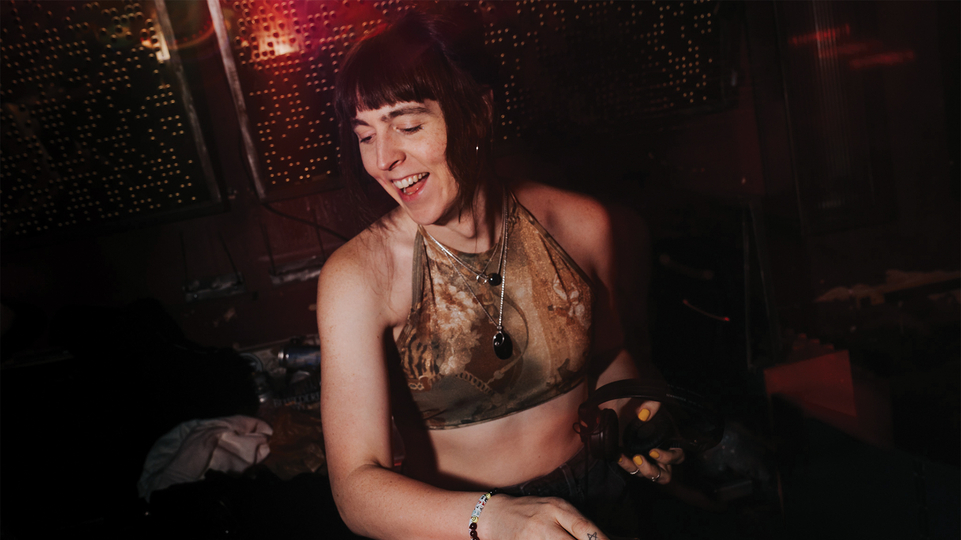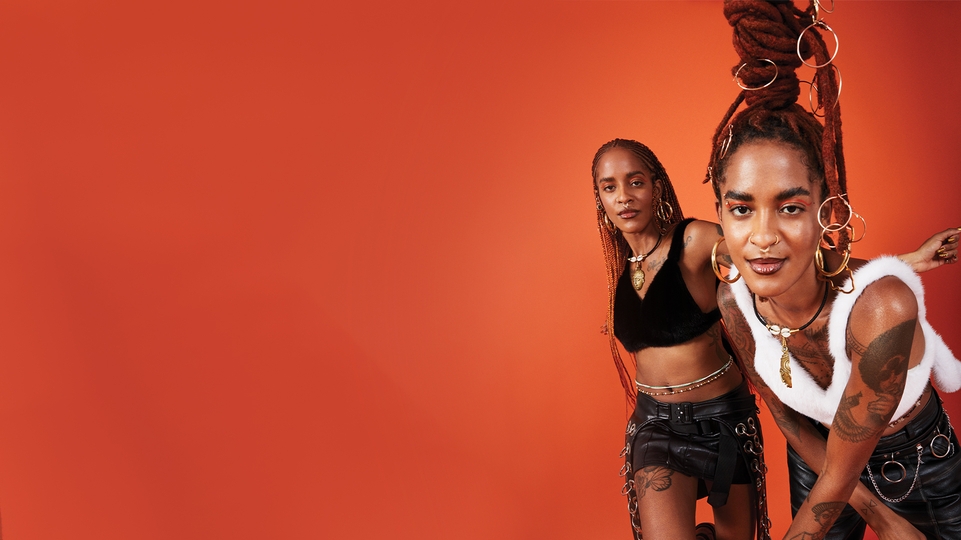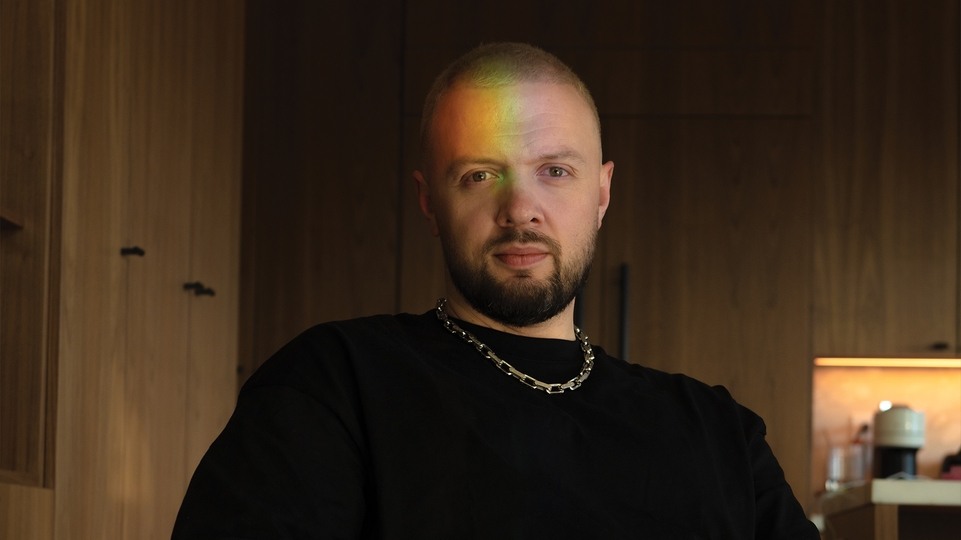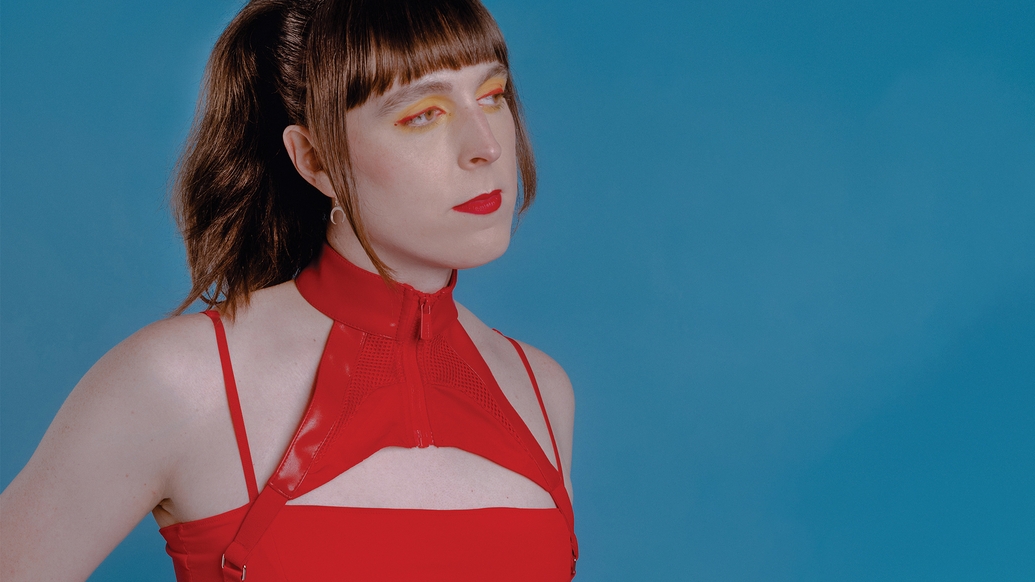
Octo Octa: ode to joy
From her first release as Octo Octa in 2011, there’s always been an element of rapturous freedom inherent to Maya Bouldry-Morrison’s music. But since coming out as a trans woman and meeting her life/work partner Eris Drew, that feeling is rendered in brighter shades than ever. Taking time out from a European tour, Bouldry-Morrison details her road to house music happiness
This feature originally appeared in print in the June issue of DJ Mag North America. It has been amended for online publication, due to two uses of on inappropriate form of the term "transgender", once in the stand-first and once in the body copy of the piece. Using correct, up-to-date language is at the heart of our editorial standards at DJ Mag, in order to ensure the publication is respectful to the lived experience of those we write about and prevent harm to marginalised communities. The print editorial team would like to express our sincerest apologies at failing to provide adequate care and attention to this piece and for any hurt and upset this has caused.
We are in the process of reviewing our editorial practices to prevent any further incidents of this nature and will publish information on the outcome of this and the changes implemented in our Q2 Diversity & Inclusion report, due August 2022.
In the spring of last year, the synthpop combo Erasure — the enduring duo of vocalist Andy Bell and Depeche Mode cofounder Vince Clarke — unveiled a new track, ‘Secrets’. The release was soon followed by a pair of remixes, one from Kim Ann Foxman and the other from Maya Bouldry-Morrison, the DJ and producer better known as Octo Octa. Bouldry-Morrison’s version is aptly titled ‘Octo Octa’s Psychedelic Visions Disco Dub’ — it’s a swirling 14-minute epic that manages to retain the original’s sparkling charm while imbuing it with a kind of hazy après-rave aura. “Hell yeah!” she exclaims when the tune comes up in conversation. “That was one of the favourite remixes I’ve ever done.”
Bouldry-Morrison’s speaking to DJ Mag from Berlin while she and her partner (in music and in life) Eris Drew are in the midst of a European tour. “It was so, so much fun to work with Vince’s stems from the tracks.” As it happens, her interviewer had seen the venerable group perform, pre-pandemic, at Radio City Music Hall in Manhattan. “Wow, how was Andy’s voice?” she immediately asks, followed by a series of queries about the gig, leading to a discussion on Clarke’s famous basement studio overflowing with synths. She’s quickly revealing herself to be a music fan at heart — to the point of, dare one say, nerdiness.
That nerdiness might be connected, on some level, to the genuine humility that Bouldry-Morrison, who’s just turned 35, seems to possess. The conversation brims with variations on the following: “It means a lot to me when people like what I’m doing. Like, cool!” At its core, there’s really not much to dislike about Octo Octa’s sound unless you just don’t like dance music. Bouldry-Morrison’s DJing, which takes in haunting deep house through hands-in-the-air vocal floor-fillers to raved up breakbeats, is rendered with a classicist’s touch — as are her hugely emotive original productions. She and Eris Drew are among the leaders of a cadre of producers currently working to suffuse the formal contours of house and rave with feelings of intense spiritual transcendence and freedom.
Bouldry-Morrison framed the most recent Octo Octa album, 2019’s ‘Resonant Body’, and a pair of EPs — ‘For Lovers’ and ‘She’s Calling’ — as “a two-year exploration of the connection between music and ritual.” Just about everything she’s ever made since releasing the debut Octo Octa EP, 2011’s ‘Let Me See You’, could fall under that description, but it’s only in recent times that she’s been able to put her finger on just what she’s been conjuring. “Even with that first EP, I was exploring sensitivity and vulnerability and the healing power of dance music,” Bouldry-Morrison says, “but it was an ineffable thing for me for a very long time. All I knew was that I make this music, it means something to me, and it makes me move my body and want to dance and feel differently than I would in my everyday life.”
Those experiences led her, slowly, to an epiphany. “I was learning more about myself, about places where I want to go and how I want to interact with the world,” she says. “I now feel like I have more of an understanding about why I was working in this space, and I’ve been trying to be slightly more deliberate with that knowledge when making the past couple records. Not that that wasn’t there before. I absolutely knew it was there before.”
That understanding’s as evident as ever in her ‘Love Hypnosis Vol. 2’ mixtape, due out this month (June). (Like most of Bouldry-Morrison’s work of the past three years, it will be released on her and Drew’s T4T LUV NRG label.) Its two halves are a showcase for the two sides of her mixing style, with the A-side, ‘Trippin’ On Love’, given over to long blends between deep and dreamy house cuts like The Spiritual Experience’s ‘Stretch My Hand’, Life On Earth’s ‘Can’t Give You Up’, and ‘Vanessa Daou’s ‘Two To Tango’. The B-side, ‘Slammin’ With Love’, is an exhilarating quick-mix hit parade of buoyant house faves and shoulda-been classics, cycling through tunes such as Crystal Waters’ ‘Makin’ Happy’ and Keith Nunnally’s ‘Seasons Of Love’, before wrapping up with the none-more-joyous ‘So Into You’ from Michael Watford.
‘Love Hypnosis Vol. 2’ feels like a product of clubland’s collective consciousness; the gracious melodies and Pavlovian-appeal basslines all serve as reminders of times spent on dancefloors past. Sometimes all it takes is a simple tone to trigger a Proustian déjà vu — the Italo house-esque timbre of the chords in Sanza:Digabla’s 1994 tune ‘Thoughts of You (So Right)’, for instance, is itself enough to set off a few shivers. Most of the mixtape’s cuts date back from the first decade or so of the house explosion — and though she wasn’t yet on the scene in those days, that’s the era of Bouldry-Morrison’s house roots.
“If you want to talk about a musical influence that really, really blows me away, it’s Todd Terry,” she says. “I own more of his records than anything else in my entire collection. He is the be-all and end-all of house music for me.” Outside of the house realm, she gives credit to liquid drum & bass pioneer LTJ Bukem. “His ‘Logical Progression’ release deeply inspired my music so, so much,” she says. “My use of basslines and pads, and beauty in music, was very influenced by him.”
Bouldry-Morrison is on a rare (and short) break in her schedule. She and Drew had recently flown to Berlin from South America, where they had a handful of gigs; that jaunt came on the heels of an Australian mini-tour. As we speak, the pair are in the midst of a whirlwind of dates throughout Europe, followed by a flight back to the States for 10 days and a few more gigs, including Bouldry-Morrison’s second time playing Detroit’s Movement fest, the first coming in 2017. “I opened up on the Red Bull stage on a Sunday,” she recalls. “I think I had maybe 40 people by the end of it. But Grandma Techno was there,” she adds, referring to the octogenarian Movement mainstay. “I was like, ‘all right then, here we go!’”
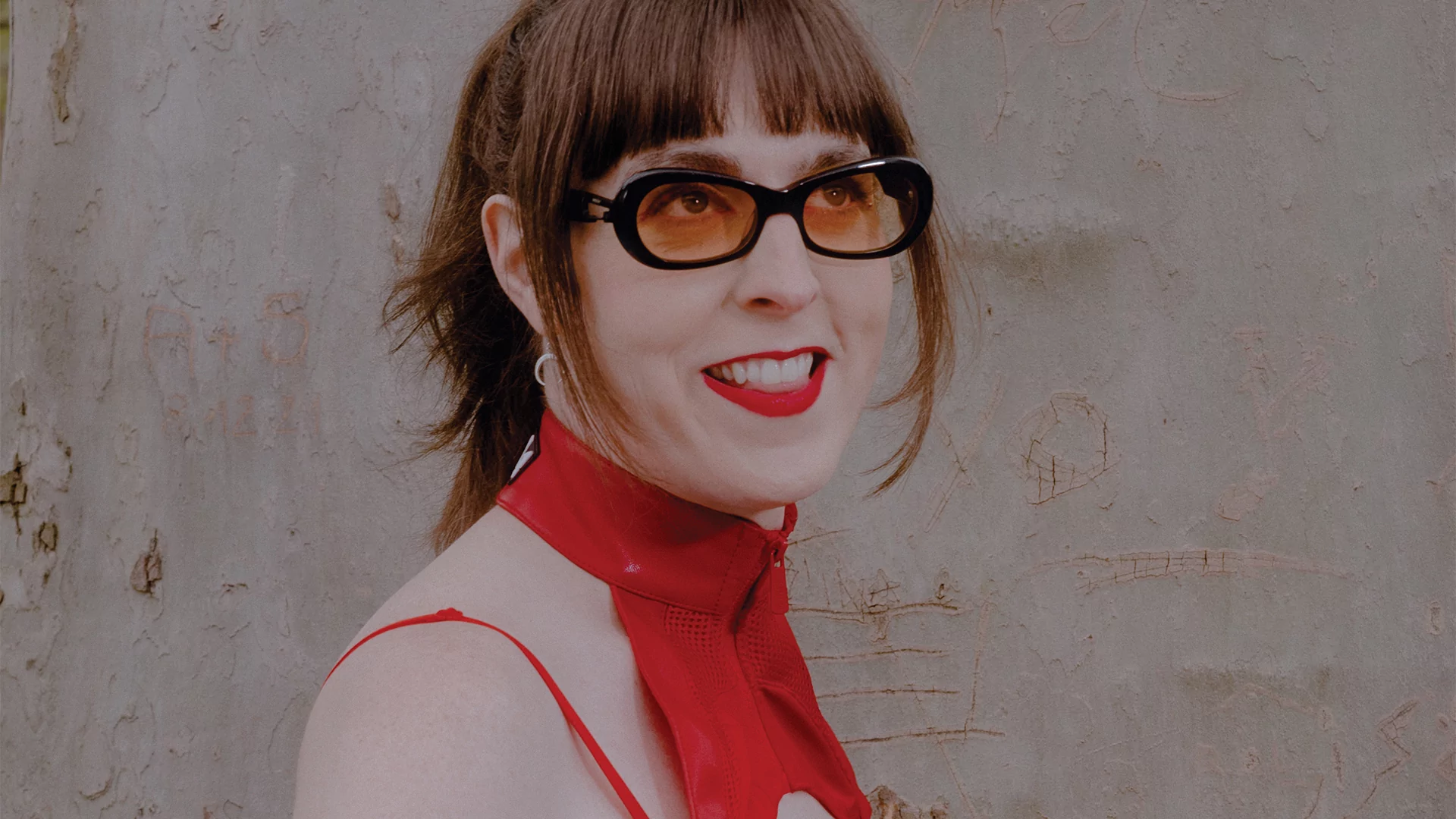
Once Movement 2022 is in the rear-view mirror, it’s back to Europe to start all over again. But while the schedule is grueling, it’s not quite all work and no play in the miasma of gig. “Eris was playing in Manchester,” Bouldry-Morrison says, “and I did the very rare thing, which is taking a night off while on tour, so I ate some mushrooms and then had four hours in the venue to dance. There haven’t been a whole lot of chances to have nights like that, so this was really, really nice. I also helped Eris for one or two minutes because she was having feedback, which is always a little bit difficult to figure out when you’re tripping.” No doubt that is true.
Psychedelics play a large role in the Octo Octa story. “Everyone has to have her own choice about the power and intention with psychedelics,” Bouldry-Morrison says — but she does credit mushrooms with helping her with what she describes as “a cocaine, speed, and alcohol problem. I was a hot mess. Then I met Eris, who also had a similar background, but by the time I had met her, she was no longer doing any of those things. Before Eris I had never had psychedelics. But now I had mushrooms, and I stopped doing all those other things.” Discovering mushrooms, though, provided more than simple addiction therapy.
“It was a moment of affirmation for me,” she explains. “I had already been practicing magic — but now it was like, what I had been feeling and understanding in the world was all actually there. Before that it felt a little like, ‘do I really know what I’m talking about? Is this like a real thing? How tangible is this? Is it all in my head?’ And mushrooms kind of just shifted that, because mushrooms definitely want to tell you plenty. They like to talk. I think they’re a really wonderful, wonderful practice for people who are looking for something. I also think it’s great for affirmation of the strange,” she adds with a smile.
Bouldry-Morrison isn’t completely disavowing her pre-psychedelics drug use, though. “My former drug experiences were still very important,” she says. “I don’t regret my path at all. Like most ravers and clubbers, it’s pretty inseparable, and I wouldn’t want to come across like that drug use was regrettable. I just had to shift to a different relationship with it for my health.”
Bouldry-Morrison is originally from Chicago; during the interview, she’s representing her birthplace by sporting a T-shirt from the venerable Gramophone record shop. When she was 10, her family relocated from the city’s suburbs to the decidedly smaller-town confines of Concord, New Hampshire. “It was a very, very normal life,” she says. “I was, and still am, a really big nerd, and my friends were all nerds. I played Magic: The Gathering on Friday nights, and Dungeons & Dragons on Saturdays at my friend’s house. I did LARPing. I was really big into anime — I still kind of am. Nerdy, dorky stuff was always my thing.”
At the same time, Bouldry-Morrison was beginning to dive into electronic music. “Some came from my dad,” she recalls. “He liked synthpop a lot, and Human League’s ‘Octopus’ was a really important album to me. I was playing lots of video games, like Super Nintendo, with all their bright sounds and melodies, and I liked that sound a lot. And I was watching sci-fi movies, and hearing more electronic music through that.” But it was the online drum & bass radio station Bassline that sealed the deal. “We had just gotten the internet, and my mom was doing graphic design, so we got a Mac,” she says. “I opened up a tab on iTunes Radio and I see Bassdrive: 24/7 Drum & Bass Music. I’m thinking, ‘well, I like drums and I think I like bass a lot.’ I opened the thing up and and it’s playing something like an Ed Rush & Optical song — and my head exploded. I was like, ‘this is the thing!’ And that was it — I just started listening to drum & bass as much as I could. Then I found jungle, and through that I found hardcore, and then got really big into breakcore for a long time.”
Meanwhile, she was trying her hand at making music herself. “My friends were all in bands, but I couldn’t play an instrument. But I remember we had gone and seen Incubus or something like that when I was 12. I was like, ‘oh, there’s like a DJ, and he’s scratching along with them’ — so I wanted to be the DJ in my friends’ group.” She bought herself a pair of belt-drive Numark turntables. “They were awful, and there was nowhere to buy records around where I lived anyway, so that was a failed attempt at trying to do something.” But before long, Bouldry-Morrison was beginning to figure it out. “When I was 14 or 15, my friend was having a punk show in his mom’s garage,” she recounts, “Then, at the very end, two of my friends brought up a microKORG, a Roland MC307 and a desktop computer with a CRT monitor, and they played an electronic set, using very early Fruity Loops or something.”
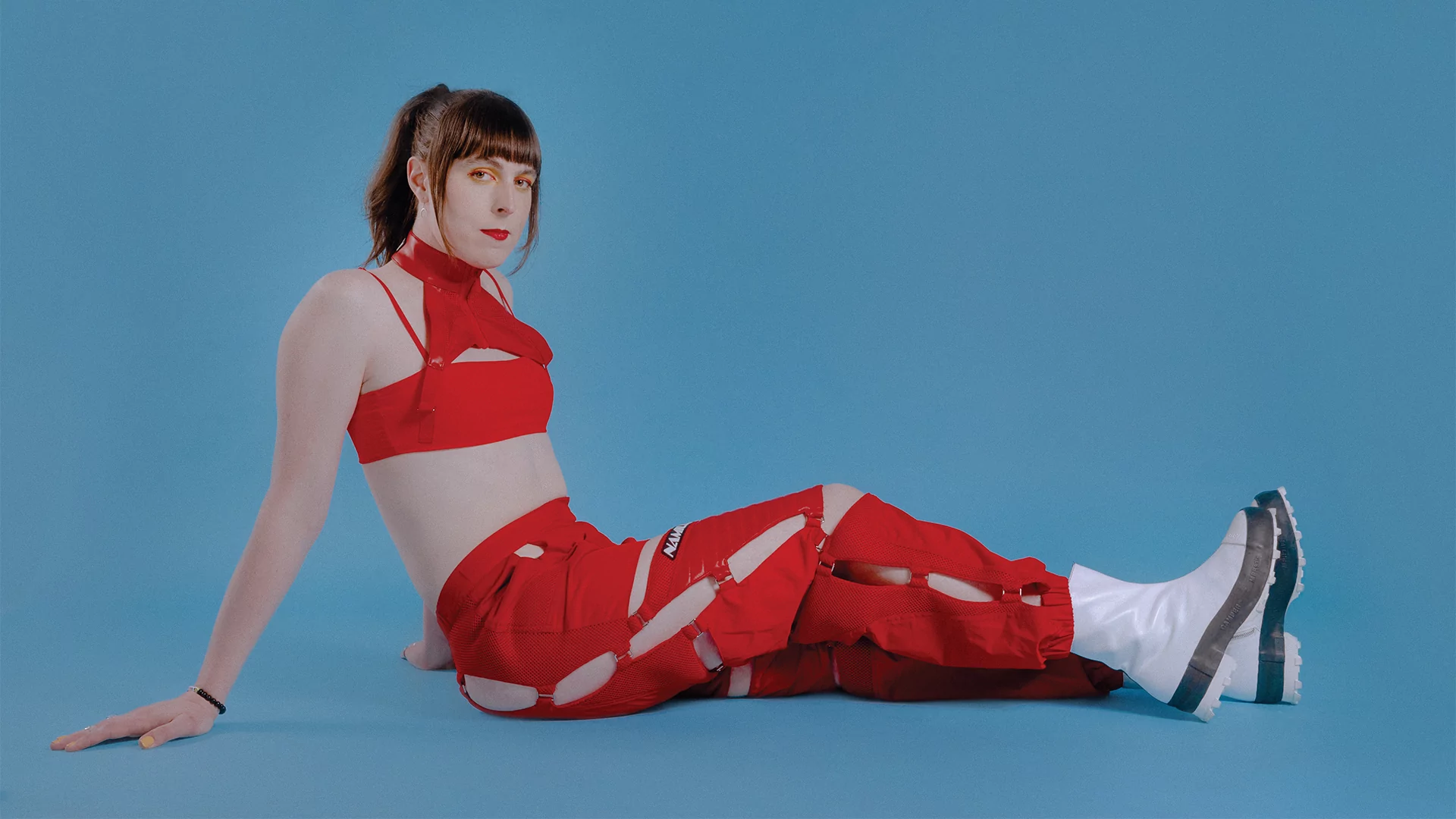
"Most of my life, I don’t get to control anything — but for this two-hour, four-hour, six-hour, eight-hour slot, this is mine. People can hate it, and they can walk away, but I’m the one who gets to make that choice to do what I want to do here”
Young Bouldry-Morrison was blown away. “On the spot, I asked them how they did it, and they said, ‘Well, you just buy this gear and stuff.’” Inspired, she logged onto eBay and found a Korg Electribe ER-1 drum machine. “I went to my friend’s house with my new drum machine. I put it down and said, ‘Okay, so how do we use it?’ And that was it.” But her earliest forays into production were a far cry from what she’s been creating in more recent years. “I did a lot of breakcore, I did like noise music, I did tons of experimental music — just bad, bad electronic music,” she admits. “We were doing a lot of circuit bending. We’d go to RadioShack and get a 20-dollar condenser mic and make it into a contact mic. I had a Behringer Virtualizer pro-effects rack — we’d go, ‘What the fuck is a phaser?’ So we’d set it to a phaser and then start hitting the microphone on the tom of a drum set. None of it was great, but just by trying anything and everything, I was realising what I can do with this. I was learning how to make sounds.”
After high school, Bouldry-Morrison attended University Of New Hampshire — “because I couldn’t get into any other school,” she claims. She’d previously been in a group with a high-school friend with the Star Wars–referencing moniker It’s A Trap, but in college, she and her friend Jeremy Boniface formed a combo named Horny Vampyre. “Vampire with a ‘y’ — that’s very important,” she says, with a serious tone. “It was like poppy dance music. Jeremy is the reason I learned how to write a song, to essentially write a melody, I don’t think he does music anymore, but he was a wonderful musician, and I learned so much from him.”
It was shortly after starting college that Bouldry-Morrison adopted the Octo Octa alias as her musical alter ego. “I had an AOL screen name, Octopus Octagon,” she says. “I was starting to study linguistics, and I just liked the idea of putting two different prefixes together.” At the time, Bouldry-Morrison was playing IDM-esque music live at local parties. “I would go with a microphone and just thrash in a crowd of people in a crowded basement,” as she describes it. “And people would, maybe, kind of, dance.”
It was an encounter with a mix CD, specifically Juan McLean’s 2010 contribution to the !K7 label’s ‘DJ-Kicks’ mix CD series, that eventually led away from breakcore and toward housed-up rhythms. “That CD was the reason that I finally understood a 4/4 beat,” Bouldry-Morrison says. “Growing up on drum & bass and jungle and hardcore, basically lots of breakbeat, I was like, ‘4/4, that’s so boring! Why the fuck would you listen to that?’ But I listened to that mix, and it had Rick Wilhite and all these other people on it, and finally it all clicked. From then on, that was it for me. That was the moment that I started making music that felt different from everything else I had done before, and that felt really personally connected to me and what I was going through as a queer person in the world.”
Inspired, Bouldry-Morrison made her own house track called ‘Let Me See You’, a piano banger that, stylistically, feels like the basis of what Octo Octa was to become. “After I wrote ‘Let Me See You’, I went to play a show, actually in the town over from where I live now,” she says. “I played ‘Let Me See You’ as my last track, and everyone in the room started dancing — like really dancing dancing. I was like, ‘oh, this is what I’ve always wanted!’ It felt so good.” The track served as the core of the debut Octo Octa EP, released on the then-young 100% Silk label in 2011. Just before the release of ‘Let Me See You’, Bouldry-Morrison moved from New Hampshire to Brooklyn with her partner Q, who had been with Bouldry-Morrison all through high school. Employment, at first, came via the cafe in the Park Slope Barnes & Noble. (“I’m very, very happy that I don’t work in a cafe at a Starbucks in Park Slope anymore,” she volunteers.) Later, she toiled in the warehouse of a high-end lighting company.
“It was just a lot of shit work,” she says. “We were loading boxes and dealing with shithead delivery drivers. I was like, ‘oh, this is not a fun job!’ It was not the thing I was supposed to be doing.” That thing, of course, was music. There were more singles on 100% Silk, along with ‘Rough, Rugged and Raw’, a 35-minute cassette released at the tail end of 2011. Bouldry-Morrison was playing live Octo Octa gigs as well — first throughout Brooklyn, and then on a cross-country 100% Silk tour with her labelmates LA Vampires, Ital, Magic Touch, and Innergaze — the latter a pairing of Aurora Halal and Steve Summers. More travel beckoned; she made an auspicious European debut at Berlin’s Panorama Bar in October 2012. “At the time, I didn’t know a ton about Panorama Bar other than it was a famous club,” she admits. “But it was such an important marker for everything leading up to it — and then what came afterwards.”
The first full Octo Octa album, ‘Between Two Selves’, was completed in 2012, and came out on 100% Silk in 2013. It was the fullest manifestation yet of what was rapidly becoming the Octo Octa sound, a dreamland version of club music that’s equal parts physicality and transcendence. The process of making the album, however, was not exactly a rarefied experience. “So, a lot happened in 2012,” Bouldry-Morrison explains. “First of all, I figured out that I’m a trans woman. Originally, ‘Between Two Selves’ was possibly going to be called ‘Transformation’ or something like that, and I was going to come out then with the record, but obviously that didn’t happen. I just got too stressed out about it.”
Stress was coming from a different, distant direction as well. “There was this news item about a giant asteroid going by Earth that was the size of a battleship,” she says, “and I had this great, great fear that it was going to hit the Earth. My anxiety was spiking already, by trying to equate what my worldview was going to be — so I thought the world was ending. I had a psychotic episode for about a week, hearing voices and like seeing messages. Awful, awful, awful.” The chunk of celestial rock, needless to say, sped by harmlessly. “So then I had a couple of days of what was essentially a come-down, where I was shaking and really nervous and having a hard time.”
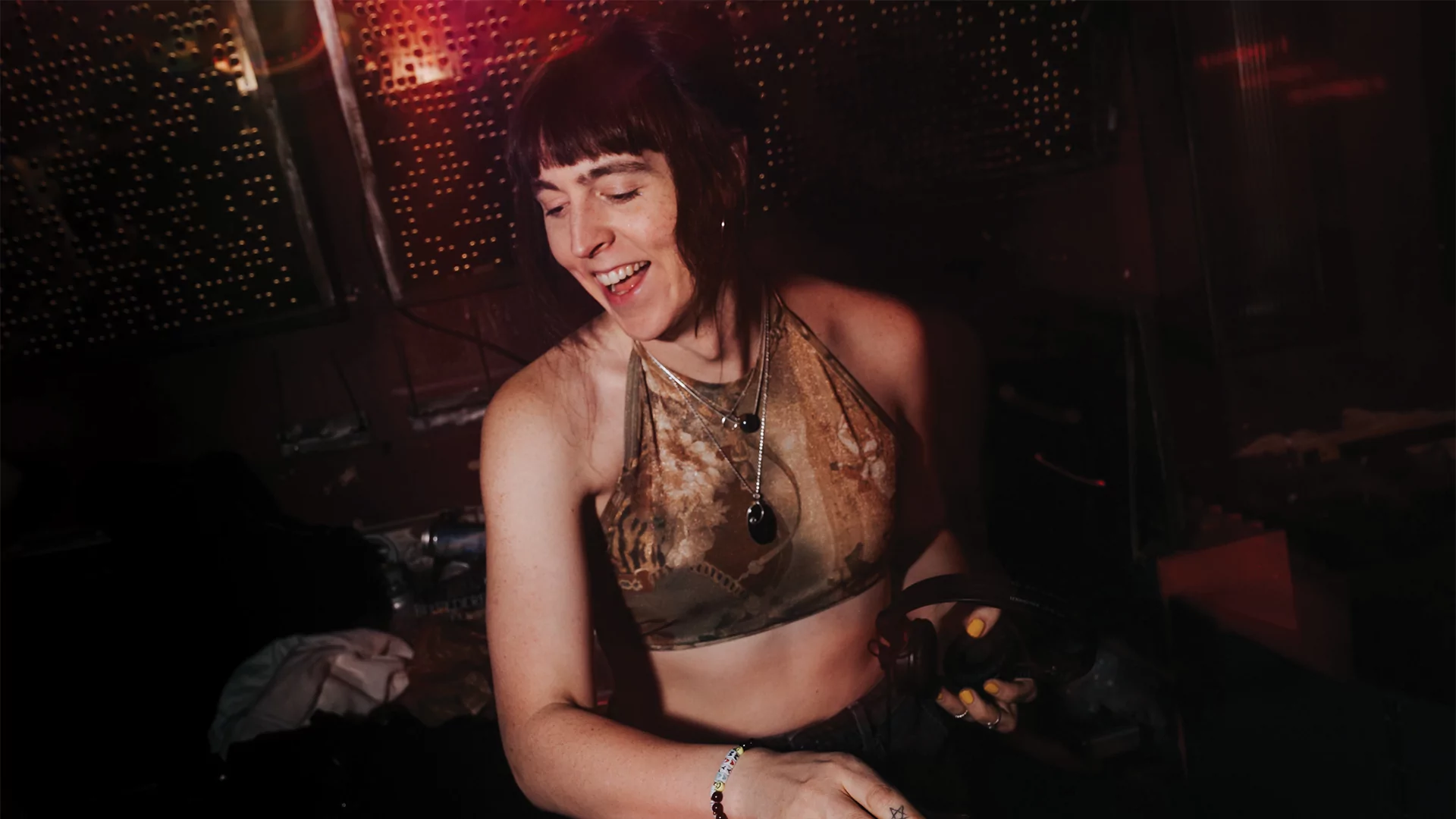
“I think the idea of transition itself is deeply flawed. There was no ‘me before’ and ‘me after.’ It was essentially just me, living this life where I felt extremely weird — and now, I don’t have to feel weird anymore, which is really nice”
Music helped, notably by experiencing Miles Davis’s nearmystical classic album ‘Bitches Brew’ for the first time. “And it was so fantastic, just a very cathartic piece of music,” she recalls. “A couple of weeks later, I was like, back to normal. But I realised what was happening was the stress of realising that I wasn’t sure what the future was going to be, in general. I wrote this record that’s full of fear and anxiety checks, like ‘please don’t go’ and ‘please don’t leave’, and fear and bad blood and all these things. It actually took me four years after finishing that music to publicly come out.”
Announcing one’s self as transgender is not a small step to take for anyone, and it was no different for Bouldry-Morrison. “I think the idea of transition itself is deeply flawed,” she says. “There was no ‘me before’ and ‘me after’. It was essentially just me, living this life where I felt extremely weird — and now, I don’t have to feel weird anymore, which is really nice. But the fear of being public was really, really intense, as it is for every trans person. It was mostly just about my family — and for work. Just trying to figure out what the fuck you’re going to do at your job is scary.” Eventually, though, she did talk to her mother, her father, and her sister.
“It took them a minute to get used to it, but they deeply want to be part of my life,” Bouldry-Morrison says. “With my friends, some friends stick around, other friends... I just don’t really hear from them anymore. I mean, no one called me up and said, ‘You’re gross. Fuck you, you evil cunt.’ That doesn’t really happen. But lots of people do drift away over time. So, I essentially have my core family, which I care about, and my core friends for the most part, which I care about.” And the warehouse — that, needless to say, is well in the past. Life, it seems, has been good to Bouldry-Morrison in the years since.
“I’ve identified as a queer person since high school, and my close friends knew that, but I rarely talked about it openly because I didn’t want my parents to know,” she says. “But now, it was great, because I was finally free. If you don’t want to be around me, fuck off, who cares? I actually get to live my life now in the way I want to. I started getting booked in queer spaces; I got to play club nights that feel really good personally, that are of this community that I’ve always been part of, but that no one knew I was part of. I was like, ‘I know how to rock a dancefloor, let’s go do it.’”
That sense of freedom is evident in her productions and DJ sets ever since; there’s been no huge stylistic break, but you can feel the unbridled exaltation in her music more than ever. 2019’s ‘Resonant Body’, released on T4T LUV NRG, was her first post-coming-out LP. “And I think ‘Resonant Body’ is my first fully joyous record,” Bouldry-Morrison says, “because I’m full of fucking joy. I have Eris in my life, I’m touring a whole lot, I’m DJing a ton, and I feel so free from all this bullshit of before.”
Bouldry-Morrison first connected with Eris Drew in early 2017, when she traveled to Chicago to play at Smartbar. “Eris had also recently come out,” Bouldry-Morrison says, recounting a story that reads like a treatment for a clubland rom-com, “and she asked to be the hospitality runner for the night, and she came to pick me up. She comes bounding up the stairs in this crazy-cute coat and cute glasses: ‘Hi, I’m Eris and I’m going to take you around!’ We get in the car and she starts playing music that I really love, but that I didn’t know anyone else really loved. I’m like, ‘Let’s keep in touch’, because, well, here’s this really cool trans girl I just met. I found out right afterwards that she’s a DJ as well, and she had an RA podcast come out. I just started listening to her DJing and I was like, ‘who the fuck is this?’ But she was so cool, and I didn’t want to fuck this up, so I tried to play it really cool.”
Soon, through a mutual friend, Bouldry-Morrison heard that Drew had a thing for her as well — and the two have been partners and creative collaborators ever since. At first, no one was willing to book the two of them to play together. At the time, Bouldry-Morrison, along with Kellam Matthews, was the resident DJ at the Frendzone party in Brooklyn. She booked Drew to DJ alongside her on July 26, 2018. Earlier that day, the pair played a set on The Lot Radio — watching the archive on The Lot’s YouTube page is witnessing the very first time that Bouldry-Morrison and Drew ever played together.
Not long after the pair met, Bouldry-Morrison had bought a home in Barrington, New Hampshire. “It’s a log cabin, but it’s not old — it was built in 1989,” she says. “A guy built it with a couple of his friends as a dream home. But he ran out of money and never finished it, so I’ve had to do a ton of work on the house to actually make it more liveable. Oh my god, there was this awful pink and blue carpeting everywhere! But now it’s really, really pretty.” Bouldry-Morrison, Drew and Q moved in together, and have been living the New England life ever since — at least on those rare weeks when gigs don’t pull the DJing two-thirds of the relationship away from home.
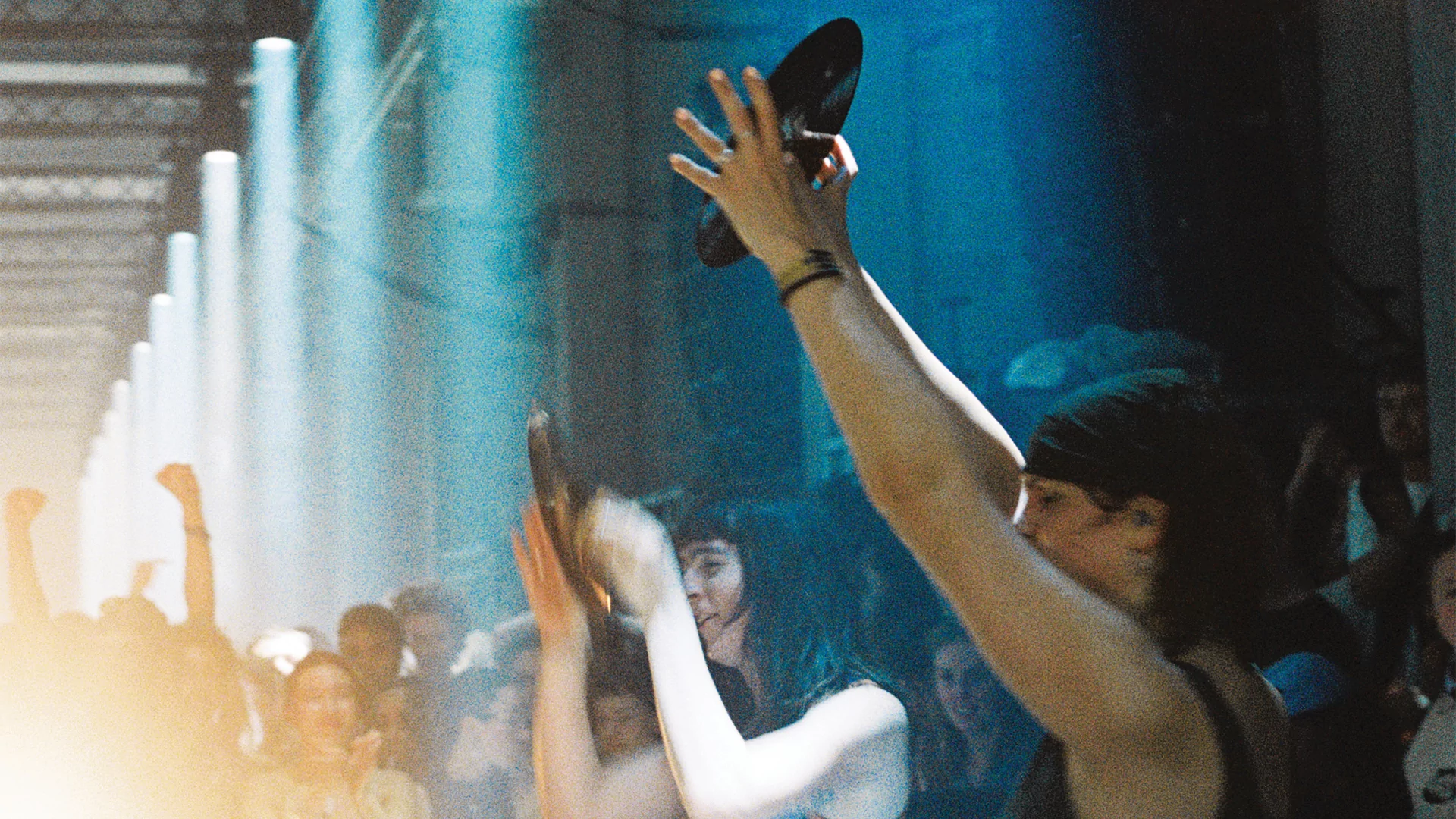
T4T LUV NRG sprang to life in 2019, initially as the name of an ongoing series of soirees helmed by Bouldry-Morrison and Drew. The party’s debut was at Brooklyn’s Good Room in early 2019, complete with the flowers and the other bits of decorative filigree that have become a staple of the throwdowns. “Around that same time, I had finished ‘Resonant Body’, and I was thinking that maybe we should start our own label so that we own everything and control everything,” Bouldry-Morrison says. “I’d been doing this for fucking long enough and like, I have enough confidence in my music that I thought we could just do it.” The label debuted in June of 2019 with the release of Drew’s ‘Raving Disco Breaks Vol.1’ mixtape — its vibe is summed up by the title — followed quickly by ‘Resonant Body’.
As one might guess by the label’s devotion to mixtapes, physical product is a focus of T4T LUV NRG’s output. “I’m a vinyl-only DJ, but not because I think records sound better,” she says. “They get scratched. They get fucked up. There are all sorts of issues with records. The reason I play them is because I like the physicality of holding the thing, and I like the manipulation of the vinyl. I always feel like I have to say that, because some people are just like, [mimics haughty voice] ‘Oh, I’m a vinyl-only DJ,’ and I’m like, ‘Hold your horses. They’re just nice, that’s all.’” The cassette releases have an added layer of reasoning behind them. “With the mixtapes, it’s the intentionality of the act,” she says. “I put a lot of thought and work into those things. Also, it’s very much a callback — I’ve been a collector for years. The amount of video games I have!”
A new label, a new home, beautiful personal relationships, and as many gigs as she could possibly play — things were looking good in Bouldry-Morrison’s life. Then, of course, a pandemic came along. “That was hard, in a couple of ways,” she says. “Things were moving like a freight train. Both Eris and I were playing a lot, we’d gotten a lot of press, our shows are going really well, and we’re feeling like we’re on top of the world. And then this thing happens, and then it comes to a stop. That was hard, because being able to play music each week is a practice of healing from the week prior.” That healing, it seems, was a necessity — as free and joyous as Bouldry-Morrison has felt in the past few years, life as a trans woman has its difficult aspects. “As someone that’s out in the world, I’m rarely a respected member of society in most public spaces,” she says. “There are things that come along with that that just kind of weigh on you as a person throughout the week, where you’re made to feel like you’re ‘less than’ — even though I know I’m not.”
And that’s where the club comes into play. “On the weekend, I get to go pull out my records that I have been buying for years, and I get to go orchestrate this thing. Not to be the centre of attention, but I get to be the conductor of an evening, and to include messages, and think about what just happened this past week, and how do I want to move through that to prepare myself for the coming week. So the pandemic hurt, because that process of having that space, and that rare occasion that I get to control this space, was gone. Most of my life, I don’t get to control anything — but for this two-hour, four-hour, six-hour, eight-hour slot, this is mine. People can hate it, and they can walk away, but I’m the one who gets to make that choice to do what I want to do here. That was the thing that was so difficult about it.”
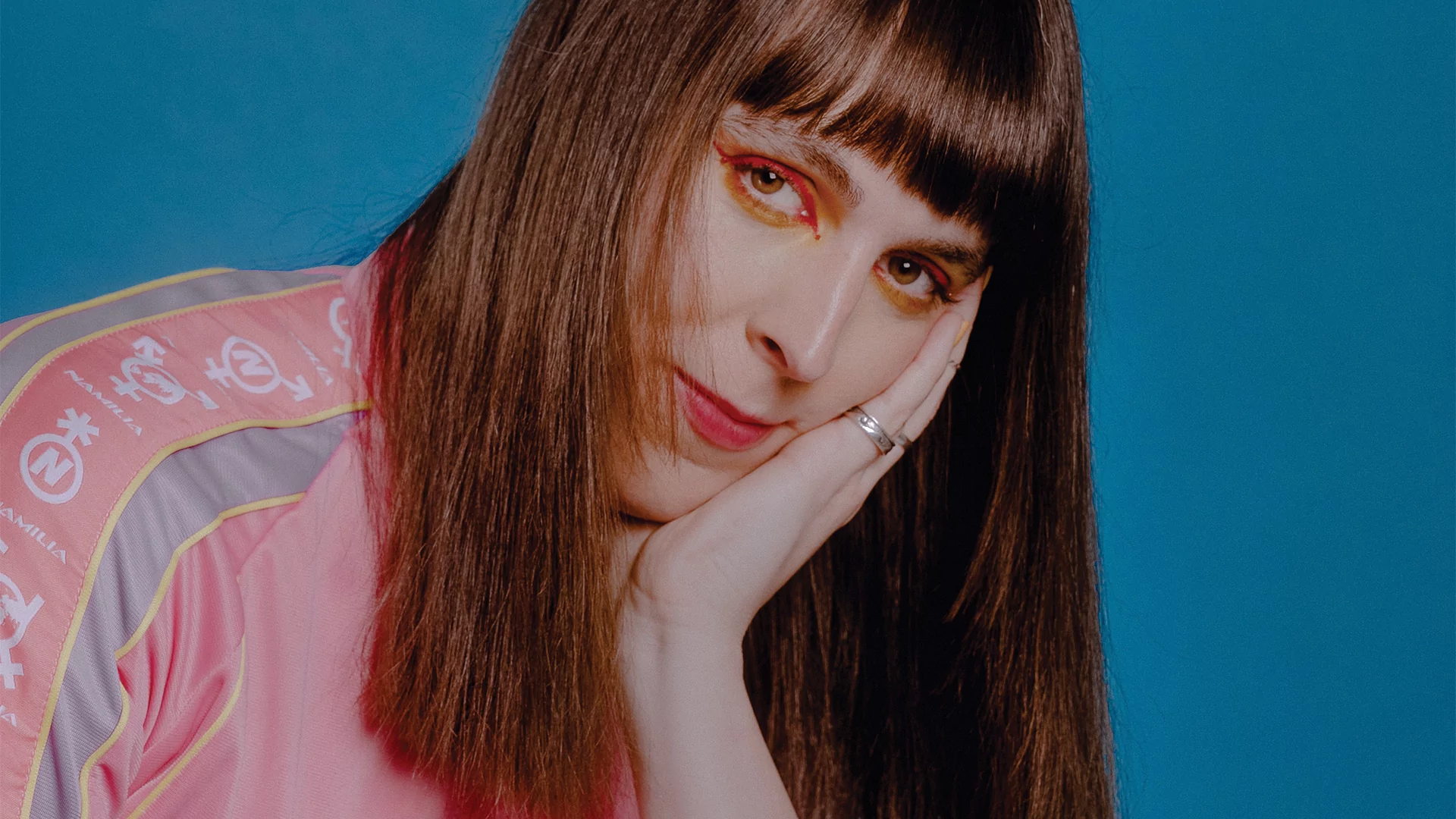
“The simplest message is just this: Love is the message. If you want to call that tacky, if you want to call that a cliché, you can. But love is the message, and it always has been.”
With the worst of the pandemic hopefully past us, the gigs have come rushing back. The upcoming festival season sees Bouldry-Morrison playing at Melt in Germany, Sónar in Barcelona, Dekmantel in Amsterdam, and Lost Village in the UK, among many others, with plenty of club dates — some with Drew, some without — scattered in between. The label is going gangbusters as well: T4T LUV NRG recently released a fantastic mixtape, ‘Amen Vol. 1’, from the ascendant Detroit DJ Beige; Bouldry-Morrison’s own ‘Love Hypnosis Vol. 2’ is about to drop; and there are a slew of records in the pipeline, pressing-plant delays willing. “And I’m technically, quote-unquote, finishing my next EP, which I would hope will be out by the end of the year,” she says. “I’ve been working on this one track for two years. It’s a great song, though!”
When asked if there’s one message that people can take away from her productions and DJ sets, and everything that swirls around the Octo Octa universe, Bouldry-Morrison has a quick response, one that echoes the name of one of the records she’d bought earlier that day. “The simplest message is just this: Love is the message. If you want to call that tacky, if you want to call that a cliché, you can. But love is the message, and it always has been.”
The following week, Bouldry-Morrison’s back on familiar ground, spinning at Brooklyn’s Public Records. By midnight, the club is packed, the smoke machine is in full effect, and she’s twirling between the decks and the booth’s record shelves, hair cascading over her Junglist Movement top. Tunes like Sabrina Johnston’s ‘Peace’, Boiling Point’s ‘I Am’ and The Daou’s ‘Give Myself to You’ flow glide by in a blissful reverie of golden-era house. Bouldry-Morrison is giving herself to the dancefloor, her message shining through.
